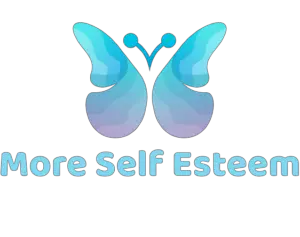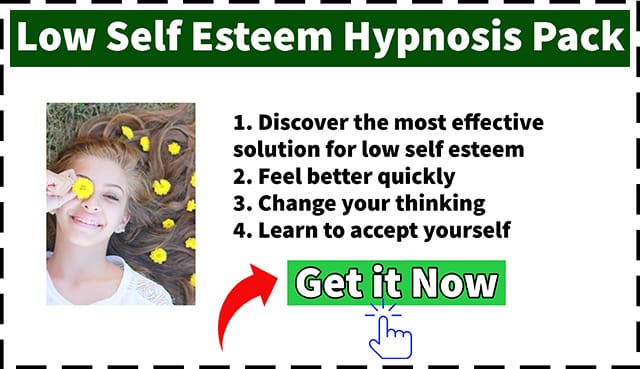If you have arrived at this page and are wondering if you are a people pleaser, and how that might be affecting your self esteem, then I can assure you that I have the answers here. I have been writing about self-esteem for over twenty years, am a published author and have suffered from low self esteem myself. I see the problems that people-pleasing can cause, and it can be quite challenging to change.
By the time you have finished reading the information on this page, you should have an understanding of the problem and what steps you can take if you are a people-pleaser. But first, let’s consider what people-pleasing is and what affect this has on self esteem.
People-pleasers often have low self esteem because they may ignore their own needs to help others. According to Black and Pearlman (1997), this can result in anxiety, frustration and depression. To build self esteem, people-pleasers need to restore the balance between self care and helping others.
What are the main reasons for becoming a people pleaser?
When you were a child growing up you probably sought the approval of your parents and chances are when you did something they didn’t like they got angry with you and maybe you got into trouble. That’s where this all starts. Many people spend their lives trying to please people and make this their main aim in life.
At work, people pleasers may have low self esteem because they often take on too much work in an effort to please their boss or others in the company (Berglas, 2004).
According to this paper by Paano (2014), being a people pleaser and a workaholic is a clear trait of someone who has low self esteem. The reason given why people behave like this in order to get the approval of others, is to reduce the pain they feel because of their low self esteem. Although this may be a reason why some become people pleasers, it is not clear how effective this strategy is and how long any benefit lasts.
This summary by Harriet Braiker, PhD, Author of the Book “Who’s Pulling Your Strings?”, explains that many people pleasers believe that their self-esteem depends on how kind and helpful they appear. They put pressure on themselves to please others by devoting themselves to making others happy. This can come at a high personal price, as these kinds of people pleasers often ignore their own needs.
What effect does being a people-pleaser have on your self esteem?
Firstly, by trying to please other people you may ignore your own wishes and this will make you feel like a victim. You need to have a balance between your own wishes and those of others. When this balance tips over so you feel like your whole life is controlled by your need to please everybody the result is not only stress and unhappiness but low self esteem.
If you suffer from this problem and want to break free then you need to do several things.
The first thing you must do is ask yourself why you are trying so hard to be liked by everyone else. Let me ask you this – do you think it is even possible for everyone to like you? How difficult is it to keep everyone happy?
Pleasing others means you start to forget how to say no. If you try you’ll feel guilty. Maybe you believe that a good person thinks of others more than themselves. Well, yes up to a point. If you want to be a saint then go ahead but remember that you can have a balance where you continue to think of others but give your own wishes and desires higher priority.
Self esteem means valuing yourself and that means being a friend to YOU. Weigh up your own needs against those of others and understand that you simply cannot please everybody. practising self care is a vital component of your self esteem.
One of the most important factors on your self esteem may well be stress. It seems that most people these days are looking for ways to ease stress and restore balance to their lives. This state is much more conducive to a higher level of self esteem.
One way of reducing stress is to value your own time more. A lot of stress is connected to time pressure or the frustration of being unable to manage time pressure effectively. Most people focus on overcoming procrastination, but one of the biggest challenges for people pleasers is priority of your time.
People-pleasers often do not value their own time highly enough and allow the time they do have to be consumed by others. Helping others is a very good thing to do, but within limits. If you devote all your time to the needs of others, there is very little left for you. By neglecting your own needs and prioritising the needs of others, you lower your self esteem.
Pleasing others all the time can give you a victim mentality and that is no good for you or for others. If you believe you are a victim then even though you try you will do things for others and feel resentful and this will give you low self esteem. Stop feeling like a victim and learn to say no. Put your own needs first, that is not selfish because if you do not look after yourself you can’t be a good partner, wife, husband , parent or whatever. Learning to say no and to stand up for yourself will boost your self confidence too.
Now many people pleasers try this and go to the extreme so be careful. Don’t become the opposite and ignore others completely as this kind of reaction is just as bad. You are looking for a balance.
How to stop trying to please others
Here are some suggestions:
- Know yourself – this is the first step towards self-awareness. When you know your own wishes and goals then you can decide to make it a priority to doing what you want to do in your life and restore balance so that you put your needs forward.
- If you have been looking for the approval of others and spent your time trying to please everybody but yourself you need to do one very important thing. You need to stop seeking others’ approval and give more importance about your own approval and self acceptance. What is more important, what others think of you or what you think of yourself?
- Become your own friend. You need to prioritise self-care. The first and most important step towards becoming your own best friend is self acceptance. Be happy with who you really are and then you can learn to like that person.
- Set your own boundaries and stick to them. You decide what your priorities are. What do you want to give your time to? You have the right to decide and you have the right to say no to others. Give others limits so that you allow yourself time to fulfil your own needs and allow a balance between saying no and helping others. There is no need to feel guilty about these boundaries as they are necessary.
- As you respect others, you deserve the same respect from yourself.
So stop playing the victim, and no matter why you feel you need to please people, you can change. Your new attitude will bring you more happiness, reduce stress and frustration, boost confidence and self esteem and restore balance to your life.
Want to Boost Your Self Esteem?
I’ve recorded an audio filled with my best confidence boosting material including practical tips to build unstoppable self confidence. If you would like more confidence and improved self esteem, you need to check this out! Get the life you deserve
References
- Berglas S. (2004). Chronic time abuse. Harvard Business Review. 82(6):90-7, 137.
- Black, A.E. & Pearlman, L.A. 1997, “Self-Esteem as a Mediator Between Beliefs about Self and Beliefs about Others”, Journal of Social and Clinical Psychology, vol. 16, no. 1, pp. 57-76.
- Braiker, H. B. (2004). Who’s pulling your strings. McGraw Hill.
- Paano, T. E. L. (2014). Identity issues: inferiority and self-esteem. Pastoral care and counselling, 16.





